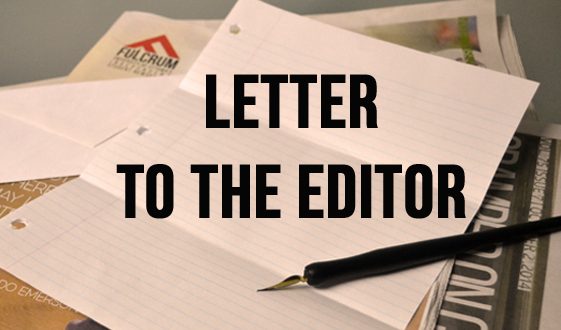Since early February, the sentence “Guys, cut it out! Just stop it!” has been ringing in my ears every time I see a new headline about the Canada-America trade relationship
Have you ever gone to a party, met a friend’s partner and been left with the conclusion that you don’t know them but they “seemed nice enough”? This is how I interpret the world telling Canada that it is the “nice country”. We are America’s partner, and where they go, we usually follow, with no one remembering much about the distinction between us.
Policy wonks in other G7 countries may know us as the country with cordial free trade agreements with all our G7 counterparts, and by general global standards we are known to be “frozen, kind, polite, Americans.” This image is, to put it lightly, not ideal when it comes to the reputation of a sovereign nation that has valuable assets such as 7 per cent of global renewable fresh water, 168 billion barrels of oil reserves, and a key role in the arctic, water, and resource protection.
I have been disillusioned with the idea that Canada is a “nice” country since I learned about our history of colonization and residential schools. Our history with Indigenous people, alone, should disqualify us from being considered a universally “nice” country.
Other imperial powers – such as the USA, Russia, and the UK – have been able to maintain control of their international and economic narratives while seemingly being unburdened by their respective colonial histories. Let us have the discussion of defining Canada on this level, where colonization and systemic oppression of Indigenous communities are not disqualifying factors to being a sovereign international power.
If you grew up in Canada, you likely learned about our role in the world wars and on an international level as a peacekeeper, a supporting power, and a perpetual ally to the “good guys”. While there is truth and merit in this narrative, the constant barrage of being told that we are the “nice” country has made us a passive partner to America, complacent to the status quo, and unable to define ourselves beyond our support for other countries’ initiatives.
This passive attitude was challenged when, in February, when the U.S. threatened to impose tariffs. Since early February, the sentence “Guys, cut it out! Just stop it!” has been ringing in my ears every time I see a new headline about the Canada-America trade relationship. You would be forgiven if you assumed this was a quote from every younger sibling ever, complaining about being picked on. However, the quote is actually from then-Liberal leadership candidate, and former finance minister, Chrystia Freeland, pleading with Americans in a CNN interview to “just stop!” the threat of American President Trump’s impending tariffs.
The quote has been picked up by American late-night shows such as Late Night with Seth Meyers, as a laugh-line demonstration of the “niceness” of Canadians, even in our most angry state. Since then, myriad online political commentary pages have mocked and mimicked the quote using a variety of gender-based, and ad-hominem attacks on Freeland’s delivery of this crucial message from Canadians. This may not have been our wisest choice when it comes to telling America to back off from threatening our sovereignty and trade relationship, but I have a hard time believing the reception would have been much different if any of our other elected representatives made the same plea. We are seen as too nice to be effectively communicating against these American threats.
Canadian citizens and politicians alike are facing a rude awakening with the threat of tariffs and more extreme measures such as annexation. The reality of the economic and cultural relationship with our southern neighbours is becoming crystal clear. Much of their current leadership does not believe they need us, and we are not effectively showing them what four decades of an integrated trade relationship proves otherwise.
Canada has long assumed that our economic relationship with the US was too close and too intertwined to be threatened or changed in any substantial manner without drawn-out negotiations. President Trump is proving this is not only untrue but is also shining a blinding light on the fact that Canada is unprepared to use our –albeit limited– leverage when it comes to proving we deserve to maintain our position as an equal player in negotiations with the US. The bluff of our “niceness” has been called and our passive and complacent habits of not defining ourselves beyond our relationships have been exposed, to our detriment.
As someone who cares about the existence of a True North, strong and free Canada, I refuse to frame this conversation as a “thank you to President Trump, for lighting a fire under our ass”, though, this may be what we need as a country to redefine ourselves. Do we want to forever be known as the country that was so “nice” that our longtime ally and neighbour was able to take over and control our economic and cultural narrative? I don’t think so.
Canada, with effort from all of its political parties, and all its people, has the opportunity to define ourselves on our terms. Our reaction to this moment is crucial to how Canada will be known as we enter a new global era. For us to be a country that truly views universal health care as a fundamental tenet of our country, that views diversity as a strength, that views nature and natural resources as indispensable, we must, as the former Toronto Raptor Fred Vanvleet became famous for – bet on ourselves, and invest in the future of Canada for what we want it to be.
Canadians trumpet our “better-than-America-universal-health-care” whenever applicable. Yet, hallway medicine is something that most Canadians are familiar with. Leadership from the federal level is essential for driving expedient reform of the Canada Health Act. This must be paired with accountability structures on the Canada Health Transfer that encourage investments in health science education and well-paid opportunities for all healthcare workers. Additionally, provinces must commit to ensuring universal and equitable access to healthcare. Only through these combined efforts, among other initiatives, will we create a healthcare system that we can proudly stand behind as a nation.
Beyond health care, Canadians must continue to bet on immigration and diversity as a source of economic power. The Trump administration has made the idea of “EDI” (equity, diversity, and inclusion) increasingly contentious. The Canadian economy has and will continue to benefit from its diverse make-up, so long as we pair it with comprehensive housing strategies to support newcomers. The new generation of Canadian leaders has come of age during the Liberal government’s commitment to immigration, and feminist foreign policy. Whether this generation supports the Liberals moving forward or not, the pro-immigration and pro-diversity mentality should not be rolled back now. Strong, accessible housing policies, paired with facilitated credential transfers will allow Canada to continue being known as a country that appreciates the diversity of our population and has a strong, independent economy.
Further, if Canada wants to continue to be known for its natural beauty, we are going to have to invest in protecting it. Climate policy and investments in clean, renewable energy sources must be the third tenet of our Canadian identity if we want to separate ourselves from America and be seen as a leader in the sector. With America pulling out of the Paris Climate Agreement Canada has the opportunity to stand up and not follow their lead. With federal and provincial investment in our domestic nuclear, energy, and oil sectors Canada has the chance to demonstrate a true commitment to the climate. A dedication to removing excess interprovincial trade barriers – as is being done – and the development of sustainable interprovincial trade agreements will allow the country to bet on itself, and prove to allies why they should too.
If these policy changes, among others, are not made, Canada should at a minimum start saying the quiet parts out loud; we are a country that is unwilling to invest in our cornerstone values and beliefs of what distinguishes us from America because it feels easier to compromise than to stand up for ourselves. Our existence as an entity is being threatened and Canada refusing to invest in its reputation will continue to let our (ex) partner define us.
As it stands, our allies are hesitant to support us in this economic conflict publicly, and Canada has lost its ability to sit on the high horse of being a globally recognized “nice” country. It is time for Canada to be known for something new. Canada is not nice, Canada is strong, Canada is welcoming, Canada is honest, and Canada is a team player – but only when others are willing to accept that we are on the same team.





